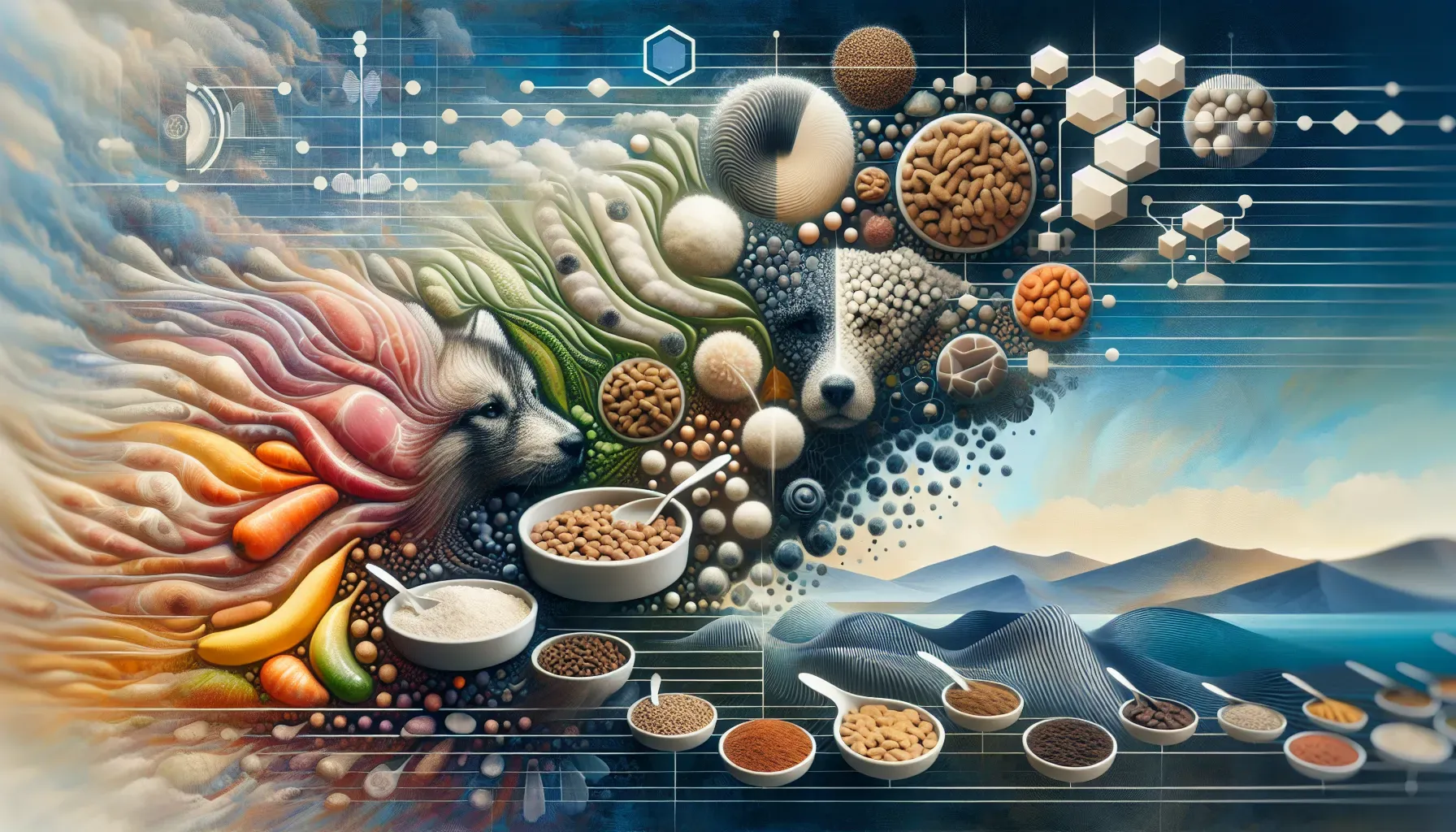Nourishing Furry Friends: A Comparative Study of Raw Diets and Engineered Pet Foods

Historically, pets relied on raw diets that mimicked their ancestors' feeding habits in the wild. These diets typically consisted of uncooked meats, bones, and organs, aiming to provide a diet resembling what animals would consume in their natural habitat. However, as domestication altered pets' lifestyles and dietary needs, there arose a necessity for more tailored nutrition options.
The Primitive Beginnings of Pet Nutrition and Raw Diets
Engineered pet foods have revolutionized the way we feed our pets. Advanced research and nutritional studies have led to the development of scientifically formulated pet foods that aim to meet various health requirements. These foods are meticulously crafted to offer balanced nutrition, catering to different life stages and addressing specific health concerns such as weight management, joint health, and allergies.
Breakthroughs in Engineered Pet Foods for Optimal Health
Recent advancements in the pet food industry have seen a shift towards personalized nutrition based on individual pet genetics. Genetic analysis enables pet owners to gain insights into their pet's specific dietary needs, allowing for tailored nutrition plans that align with each pet's genetic predispositions. This tailored approach ensures that pets receive optimized nutrition that suits their unique biological makeup.
Related Article: Combatting Pet Obesity: Holistic Approaches to Weight Management and Nutritional Balance
Tailoring Nutrition to Pet DNA: The Role of Genetic Analysis
Engineered pet foods are formulated with careful consideration of the ingredients used. High-quality proteins, essential vitamins and minerals, beneficial fats, and carbohydrates are integrated to create a complete and balanced diet for pets. Understanding the significance of these components empowers pet owners to make informed choices when selecting commercial pet foods for their beloved animals.
The debate between raw diets and engineered pet foods continues to spark discussions among pet owners and veterinary professionals. Proponents of raw diets advocate for its natural and unprocessed nature, emphasizing its potential benefits such as improved coat quality and dental health. On the other hand, supporters of engineered pet foods highlight the safety measures in place to prevent bacterial contamination often associated with raw meats.
Understanding Ingredients in Today's Engineered Pet Foods
A growing trend in pet nutrition involves customizing diets based on individual pet health data. Veterinary professionals are leveraging technology to assess pets' nutritional needs through comprehensive health data analysis. This approach allows for precise nutrient profiling tailored to address specific health conditions or deficiencies in a pet's diet, ultimately promoting overall well-being.
The Raw Diet Debate: Natural Instincts vs. Modern Needs
As pet owners explore the nutritional landscape for their furry friends, it's essential to consider the potential impacts of synthetic and natural diets on pets' health outcomes. While engineered pet foods offer convenience and precise nutritional control, proponents of raw diets argue that they closely align with ancestral feeding behaviors. Evaluating these factors against individual pet needs is crucial for making informed decisions that prioritize long-term health benefits.
Customizing Pet Diets Based on Health Data and Needs
In response to evolving consumer preferences and sustainability initiatives, the pet food industry has witnessed innovations in sustainable and allergen-free options. Plant-based ingredients, eco-friendly packaging, and allergy-conscious formulations have gained traction as pet owners seek ethical and environmentally responsible choices for their pets' diets.
Frequently Asked Questions
Raw diets for pets aim to replicate their ancestral feeding habits, providing uncooked meats, bones, and organs. Proponents argue that these diets can improve coat quality, dental health, and overall vitality by offering natural and unprocessed nutrition that aligns with pets' instinctual needs.
Engineered pet foods are scientifically formulated to meet various health requirements. They provide balanced nutrition tailored to different life stages and specific health concerns such as weight management, joint health, and allergies, ensuring that pets receive the nutrients necessary for optimal well-being.
Genetic analysis helps pet owners understand their pets' specific dietary needs by revealing genetic predispositions. This information allows for personalized nutrition plans that align with each pet's unique biological makeup, ensuring they receive optimized nutrition tailored to their individual health requirements.






